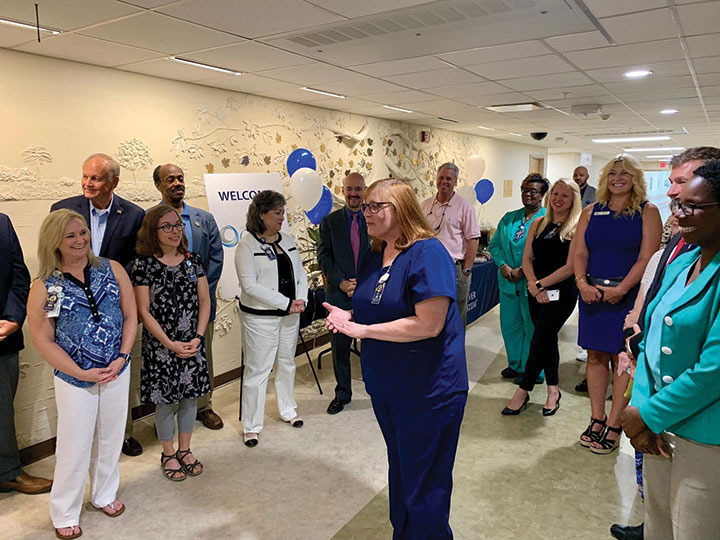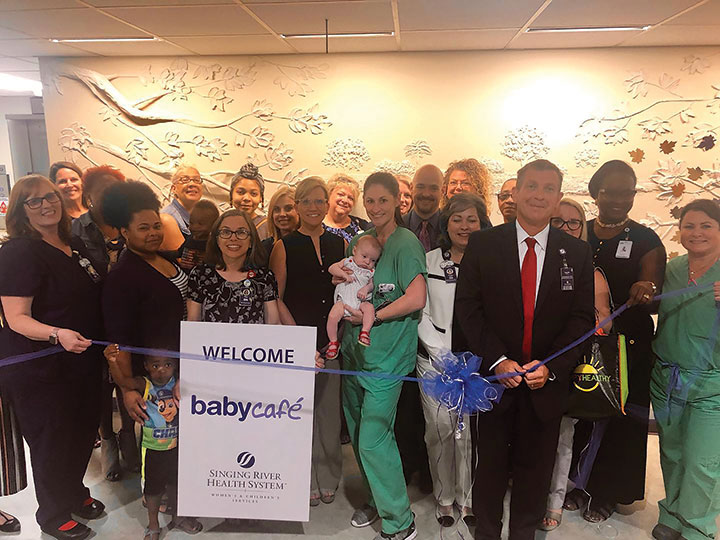A grant-funded program is aiming to increase breastfeeding, decrease smoking and improve health overall among African Americans in south Mississippi and beyond.
The Mississippi Public Health Institute recently received a five-year, $3.4 million grant from the Centers for Disease Control and Prevention to help improve the health and well-being of African American families, mothers and babies in Jackson, Hancock and Harrison Counties. MSPHI competed with more than 200 organizations for the award, which was one of only 31 made from CDC’s Racial and Ethnic Approaches to Community Health (REACH) program.
“This project focuses not only on the promotion of breastfeeding, but overall health as well,” says Jacinda Roach, program director with MSPHI. “Other activities we’re focusing on … include the promotion of tobacco-free living and access to healthy foods. We would like to change the way the entire family thinks about health.”
Roach says to make the project — called the Healthy Families, Mothers and Babies Initiative — successful, MSPHI is collaborating with several local entities, including Coastal Family Health Center, Feeding the Gulf Coast, Mississippi State University, Singing River Hospital and Merit Health Biloxi.

“These partnerships will enable us to better reach women and families and ensure the efforts can be sustained at the end of the project,” Roach adds.
Through a communications campaign that kicked off in September, MSPHI is working to raise awareness about breastfeeding and tobacco-free living — which Roach says includes pop-up educational events and a targeted media effort. An example are billboards, sponsored through Coastal Family Health Center, to promote breastfeeding.
“Smoking cessation and breastfeeding are singled out because we know both practices can lead to better health outcomes for mothers and their babies,” she explains.
Data shows that Mississippi has the fifth-highest smoking rate in the nation, and 10 percent of pregnant women in the state smoke at some point during their pregnancy. Breastfeeding rates remain low statewide for all ethnic groups and are lowest among African American women for numerous reasons, according to Roach — including lack of familial support for the practice and lack of support upon returning to work after giving birth.
“We hope to provide support needed through the establishment of baby cafés in the three coastal counties and guiding area businesses to become breastfeeding-friendly,” she says. The grant has funded new baby cafés at Singing River and Merit Health — with plans for more in the future, as well as lactation rooms at Coastal Family Health clinic sites.
Jackson, Hancock and Harrison counties were targeted, Roach says, because of the the strong community networks that came together to rebuild after Hurricane Katrina.
“We believe this same sense of community can be applied to the promotion of positive health outcomes,” she adds. “Through the work of this project, we hope breastfeeding, eating fruits and vegetables and living tobacco-free will become the norm.”


